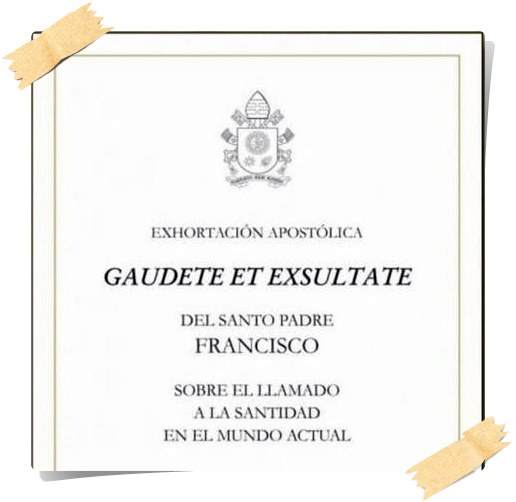Signs of Holiness
(This is the fourth treatment of Pope Francis’ Gaudete et Exultate)
Signs of Holiness
Chapter 4 of Pope Francis’ apostolic exhortation Gaudete et Exsultate presents further connections to the spirituality of St. Francis de Sales and St. Jane de Chantal. Recalling the definition of holiness as charity, the pope highlights “five great expressions of love for God and neighbor”:
- Perseverance, patience, and gentleness
- Joy and a sense of humor
- Boldness and passion
- Life in community
- Prayer
Each of these is a sign of the charity, which is the holiness, that the pope is inviting us to experience. The delight of knowing that a good sense of humor is a path to holiness is a refreshing insight, for many have the idea of holiness as somber people who are so serious about their relationship with God and following the tenets of the church that they forget to smile and celebrate the goodness of life. This is not holiness for Pope Francis or St. Francis de Sales.
Treating patience, which DeSales hailed as a powerful virtue, the pope discusses humility. For the 17th century bishop whose favorite Gospel quote was Matthew 11:29 where Jesus calls his disciples to learn from his gentle and humble heart, humility is an essential Salesian virtue. Like the saint reminds his followers to love their abjection, points of weakness or sources of failure, the pope offers similar advice: “Humility can only take root in the heart through humiliations. Without them, there is no humility or holiness. If you are not able to suffer and offer up a few humiliations, you are not humble and you are not on the path to holiness” (no. 118). Pope Francis continues: “To act in this way presumes a heart set at peace by Christ, freed from the aggressiveness born of overweening egotism” (no. 121).
With such an emphasis on the personal attainment of holiness, the pope acclaims the essential nature of community in the life of charity. “Growth in holiness is a journey in community, side by side with others” (no. 141). Pope Francis offers the important example of Jesus for communities to attend to little details for them to enjoy each other or grow their relationships: the little detail of wine running out at a party, of one sheep missing, of having spare oil for the lamps, of asking how many loaves of bread they had. “A community that cherishes the little details of love, whose members care for one another and create an open and evangelizing environment, is a place where the risen Lord is present, sanctifying it in accordance with the Father’s plan” (no. 145). Highlighting such “little details,” Pope Francis echoes DeSales’ assertion that holiness is found in doing ordinary things extraordinarily well.
This chapter concludes with a treatment on the value of prayer with an enthusiastic recommendation for praying with the Scriptures. “Trust-filled prayer is a response of a heart open to encountering God face to face, where all is peaceful and the quiet voice of the Lord can be heard in the midst of silence” (p. 149).




